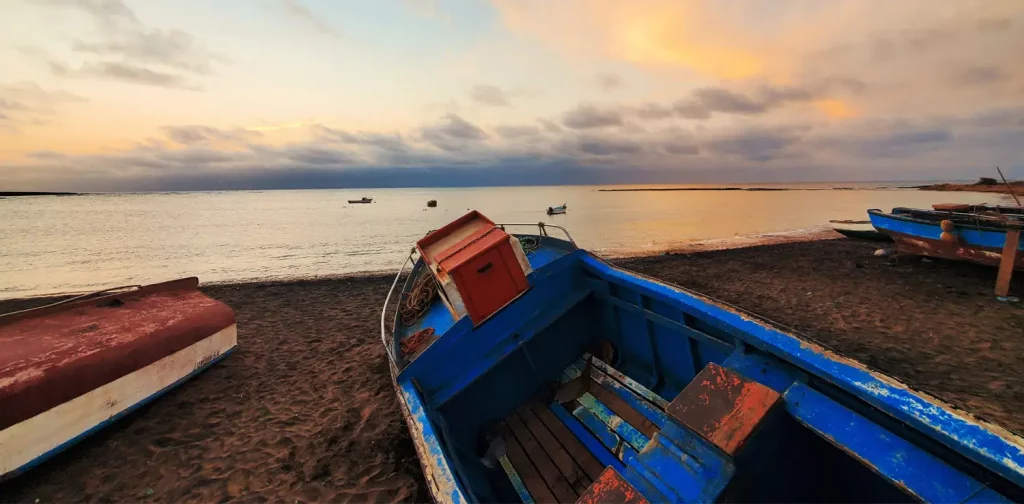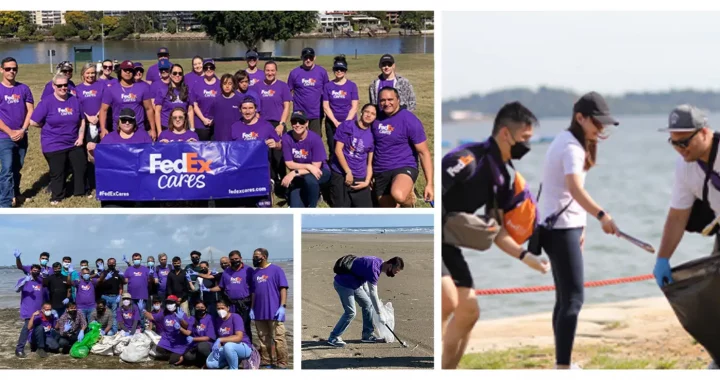Ocean Conference: International Law, Financing, and Science-backed Frameworks for Small Island Developing States

Photo by Victor Svistunov on Unsplash
It is known that 71% of the earth’s surface is covered by the ocean. For some countries, marine resources are considered untapped potentials besides their land resources. For other nations, however, the sea is their only lifeline.
The United Nations Ocean Conference 2022 was held in Lisbon, Portugal, from June 27 – July 1. One of the dialogues delved into sustainable ocean economics for Small Islands Developing States (SIDS).
Sustainable ocean economy for SIDS
Small Islands Developing States (SIDS) refers to developing countries whose territory takes the form of small islands. Currently, 58 countries fall into the SIDS category, located in the Caribbean, the Pacific, and the Atlantic, Indian Ocean and South China Sea (AIS).
On average, SIDS’ sea territories are 28 times larger than their land mass. This means the countries rely more on ocean resources to support their economy. However, due to their remote locations and minimum resource alternatives, their dependence on the ocean makes them particularly vulnerable to climate change and biodiversity loss.
With the current condition of our planet, addressing those issues is crucial. The plenary titled “Promoting and strengthening sustainable ocean-based economies, in particular for Small Island Developing States and Least Developed Countries” featured the representatives of 45 countries.
SIDS call for collective effort
Out of 45 representatives, 17 were representing SIDS. They shared stories, insights, and demands for creating a better future for our oceans. The representatives of Seychelles and São Tomé and Príncipe deemed the conference an excellent opportunity to have a dialogue and form bilateral and multilateral partnerships.
Most SIDS representatives emphasized their country’s dependency on the ocean. Abraão Vicente, Cabo Verde’s Minister of the Sea, stated that his country is 99% sea. This geographical condition is both the source of economic growth and multidimensional vulnerabilities.
“The vulnerability has been exacerbated by the crisis that the world is facing; the climate crisis, the COVID-19 pandemic, the energy crisis, the inflation caused by the war in Ukraine. SIDS are some of the countries most impacted by these crises, and Cabo Verde is as well, especially in the economic domain,” he added.
While these SIDS have their own initiatives, the lack of financial and institutional aid has been their main obstacle in scaling up these actions. Therefore, the majority believe partnership and collective effort in creating international law, financial assistance, and science-backed frameworks are keys to develop sustainable ocean economies and practices.
The ocean is the future
The world is at its tipping point, and the impact will be disastrous if we do not act now. As the oceans connect us all, this crisis will significantly impact all of us. Echoing the theme of the World Ocean Day and the SIDS representatives, the nations need to start joining hands to build collective regulations, technologies, and aids for a more sustainable ocean.
Editor: Nazalea Kusuma
Kresentia Madina
Madina adalah Asisten Manajer Publikasi Digital di Green Network Asia. Ia adalah lulusan Program Studi Sastra Inggris dari Universitas Indonesia. Madina memiliki 3 tahun pengalaman profesional dalam publikasi digital internasional, program, dan kemitraan GNA, khususnya dalam isu-isu sosial dan budaya.

 Test Custom Feature Image
Test Custom Feature Image  Electric Vehicles Roam the Roads of Kenya
Electric Vehicles Roam the Roads of Kenya  FedEx Engages Employees with Beach Clean-Up Initiative
FedEx Engages Employees with Beach Clean-Up Initiative  Come Back Stronger: Building Philippines’ Resilient Economy Post-COVID-19
Come Back Stronger: Building Philippines’ Resilient Economy Post-COVID-19  Inside Experian’s Sustainability Journey: An Interview with Chief Sustainability Officer Abigail Lovell
Inside Experian’s Sustainability Journey: An Interview with Chief Sustainability Officer Abigail Lovell  5 Food System Actors That Have Taken the 123 Pledge to Reduce Food Loss & Waste
5 Food System Actors That Have Taken the 123 Pledge to Reduce Food Loss & Waste  Test premium post
Test premium post